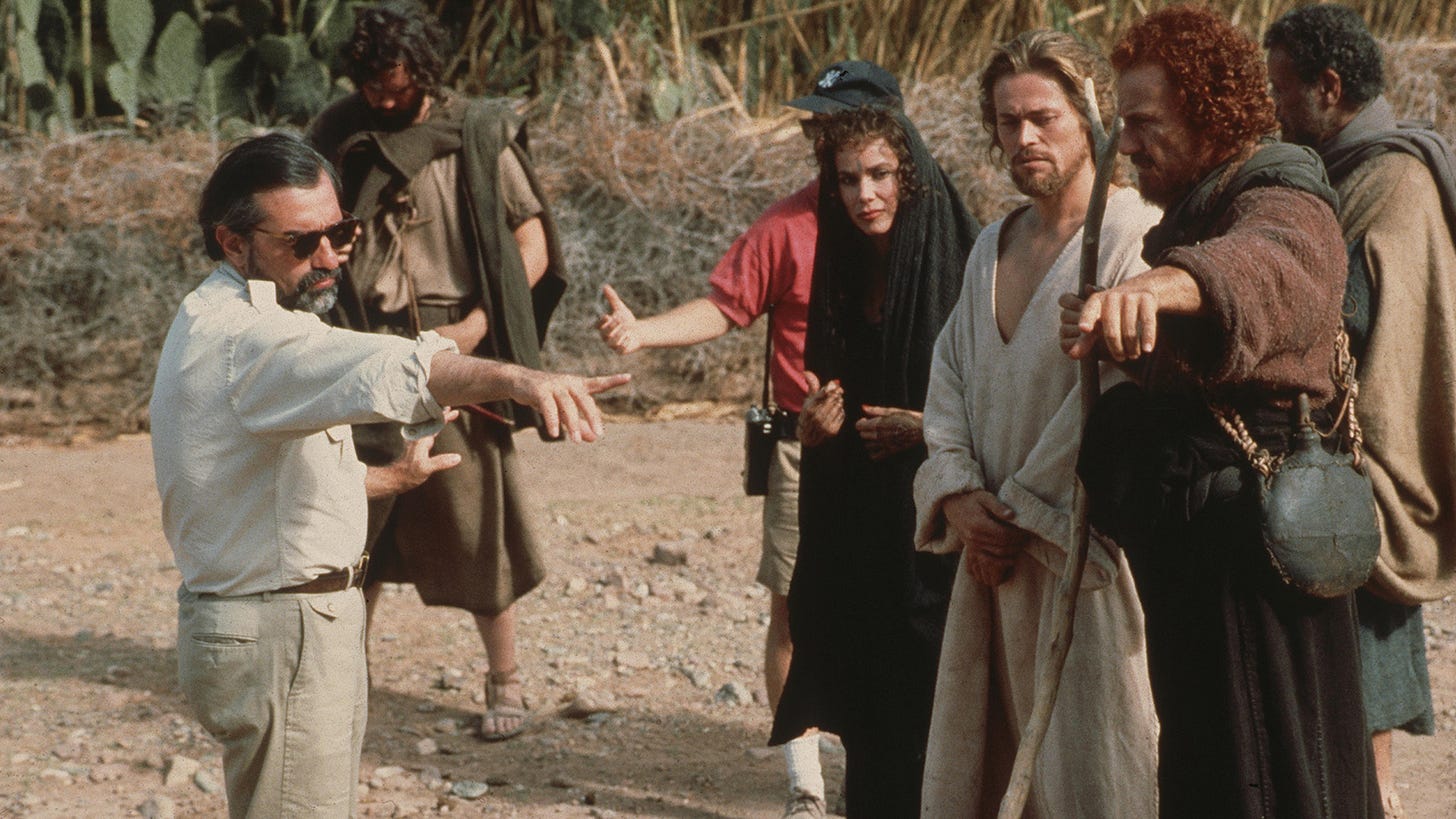Is Martin Scorsese making another Jesus movie?
The director of The Last Temptation of Christ might be making a second trip to the Bible-movie well.

Variety reports that Martin Scorsese might be making another movie about Jesus, 35 years after he directed the very controversial The Last Temptation of Christ:
Martin Scorsese is on a post-Cannes tour of Italy where over the weekend the director, known for having a religious bent, met with Pope Francis and announced that he will make a film about Jesus.
“I have responded to the Pope’s appeal to artists in the only way I know how: by imagining and writing a screenplay for a film about Jesus,” Scorsese announced on Saturday during a Rome conference at the Vatican, according to multiple reports. “And I’m about to start making it,” the director added, suggesting that this could be his next film. . . .
Regarding cinematic references, during the conversation Scorsese cited his admiration for Pier Paolo Pasolini’s “The Gospel According to St. Matthew.” Scorsese also talked about the meaning of his own 1988 epic “The Last Temptation of Christ” and of “the subsequent step in his research on the figure of Jesus” represented by his smaller-scale 2016 drama “Silence” about the persecution of Jesuit Christians in 17th-century Japan. . . .
A few quick thoughts about this:
I’m half-expecting someone to debunk this report—just look at how the Pythons responded to the recent news about the stage adaptation of Life of Brian, news that was apparently based on a slightly garbled version of something that John Cleese said during a one-man show—but let’s run with it for now.
I think one of the reasons I’m hesitant to believe this news is because Scorsese is quoted as saying that he “imagined” the screenplay. Nearly every Scorsese film of the past 40 years has been based on a book of some sort, and that includes The Last Temptation of Christ, which was based on a 1955 novel by Nikos Kazantzakis. What’s more, Scorsese’s films have usually been written by other people—and on the rare occasion that he has taken a writing credit, he has shared it with someone else. Scorsese just doesn’t strike me as the kind of guy to “imagine” a new script based directly on the gospels—not without a collaborator.
That being said: Two years ago, Paul Schrader, who has written a number of scripts for Scorsese including The Last Temptation of Christ, said he and Scorsese were developing “a three-year series about the origins of Christianity” called The Apostles and Apocrypha. Is this film related to that series in any way, shape, or form? Did the series become a film at some point in the development stage? Was Scorsese referring to the series when he said he was making “a film”? (Is he, perhaps, going to direct the pilot episode, or something like that?)
Scorsese often talks about filmmaking as an opportunity to “learn” things,1 so I like the idea of him returning to the Jesus-movie genre because he has done more “research”. I’m curious to see what he has “learned” about Jesus since 1988.
Scorsese has said (on the Criterion DVD commentary track, I believe) that he cast Willem Dafoe as a blonde-haired, blue-eyed Jesus in The Last Temptation of Christ because he wanted to subvert the image of Jesus that many people had in their heads back then. How would he cast the character now, after several years of Jesus being played by black, Maori, Tamil, Arab, Israeli, and Indo-Guyanese actors? What expectations does Scorsese assume his audience would have now?
It is widely believed that Jesus died when he was 33. (Luke’s gospel says Jesus was “about thirty” when he started his ministry, and John’s gospel indicates the ministry lasted for at least a few years.) It has now been 35 years since The Last Temptation of Christ came out. So if Scorsese makes a second Jesus film, the gap between his films would be longer than Jesus’ entire earthly lifespan.
How many major filmmakers have made multiple Jesus films, I wonder? Cecil B. DeMille put a Jesus scene in the 1923 version of The Ten Commandments, four years before making The King of Kings, but I’m not sure that counts. Most of the other examples I can think of are in religious media or television.2
Jordan Ruimy notes that this is at least the fourth project that has been floated as a possible follow-up to Killers of the Flower Moon, the Scorsese-directed crime drama that premiered at Cannes last week and is set for a theatrical release in October. The other three projects are a Jerry Garcia biopic, a Teddy Roosevelt biopic, and an adaptation of David Grann’s mutiny-and-shipwrecks book The Wager.
So it’s anyone’s guess whether Scorsese will actually make another Jesus film, even if he does have one in development. But I’m keen to see it if he does.
Ellen Burstyn hired Scorsese to direct 1974’s Alice Doesn’t Live Here Anymore because, when she told him she couldn’t tell from his existing films if he knew anything about women, he replied, “I’d like to learn.” Similarly, I vaguely recall that, when 2019’s The Irishman came out, Scorsese said it had been a long time since he last made a gangster movie because, for a long time, he wasn’t really sure what else there was to “learn” from the genre.
On the religious-media side, John T. Coyle (co-)directed The Living Christ Series, I Beheld His Glory, and Day of Triumph in the early 1950s; and you could also point to David Batty, who directed all four adaptations of the gospels in the Lumo Project series. On the TV side, Mark Burnett and Roma Downey have produced multiple Jesus projects, and Roger Young directed The Bible Collection: Jesus in 1999 before directing a remake of Barabbas in 2012.


